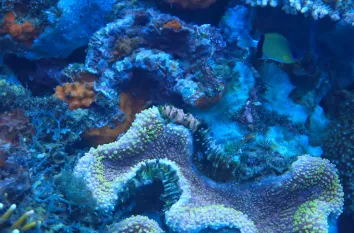Information
The Ocean Protection and Community Action program on EverLMS equips learners with the knowledge and practical tools to safeguard marine ecosystems and lead local conservation initiatives. Combining science, policy, and hands-on community engagement, this course turns awareness into measurable action for coasts, reefs, estuaries, and open-ocean habitats.
What You’ll Learn
Marine ecology basics: Ocean zones, food webs, keystone species, and ecosystem services.
Threats to oceans: Pollution (plastic, chemical, noise), overfishing, habitat loss, climate impacts (warming, acidification).
Conservation strategies: MPAs, sustainable fisheries, restoration (mangroves, seagrass, coral), circular economy practices.
Community action toolkit: Beach cleanups, citizen science monitoring, local policy advocacy, education campaigns.
Data & impact tracking: Designing KPIs, recording results, reporting outcomes to stakeholders.
Risk & safety: Fieldwork safety, waste handling, and storm/tide awareness.
Funding & partnerships: How to build coalitions with schools, NGOs, coastal businesses, and local government.
How the Course Works?
Why Learn with EverLMS?
Action-oriented: Templates, checklists, and guides you can deploy in your community.
Flexible: Learn anytime, on any device—ideal for volunteers and busy coordinators.
Practical: Blends science with real programs (cleanups, monitoring, advocacy).
Scalable: Configure cohorts by city/school/NGO and compare outcomes across sites.
Who Should Join?
Teachers & students: Launching school-based ocean stewardship projects.
Community organizers & NGOs: Coordinating cleanups, monitoring, and outreach.
Coastal businesses & tourism operators: Building sustainable, ocean-friendly practices.
Concerned citizens & families: Looking for structured, safe, high-impact ways to help.
Conclusion
The Ocean Protection and Community Action for Marine Environments Training Program on EverLMS transforms passion into impact—giving individuals and organizations the knowledge, tools, and community support to protect oceans locally while contributing to global change.
